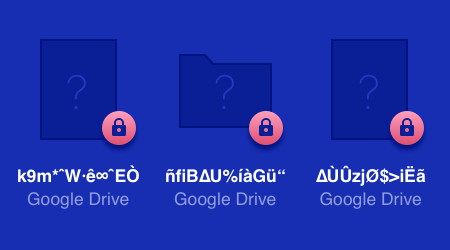

One could even argue that communicating, publishing, publicly performing or displaying, and distributing content are just convoluted, legal-ese ways of saying that Google can provide your own data to you from any computer you choose, be it public or private. Reproducing, modifying and creating derivative files would be necessary during a server migration or as a recuperative measure if Drive ever became the victim of a large-scale cyberattack. You may sometimes need to encrypt your Google drive folders to protect your data from hackers breaching data or just staying secure from prying eyes. Using, hosting and storing data is Drive's explicit purpose. Your location information helps Google ascertain if someone has hacked your account in an unusual spot - say, Eastern Europe.Įven the company's terms of service are not unusually demanding. Google needs to know your device and login information in order to keep you signed-in on a phone or private computer. These permissions may sound scary, but there's actually a very innocent explanation for each one.


Google's Drive FAQs say that the company will not use any data you mark as private for marketing or promotional purposes, but its terms of service are much more freewheeling: Google can "use, host, store, reproduce, modify, create derivative works … communicate, publish, publicly perform, publicly display and distribute content."


 0 kommentar(er)
0 kommentar(er)
